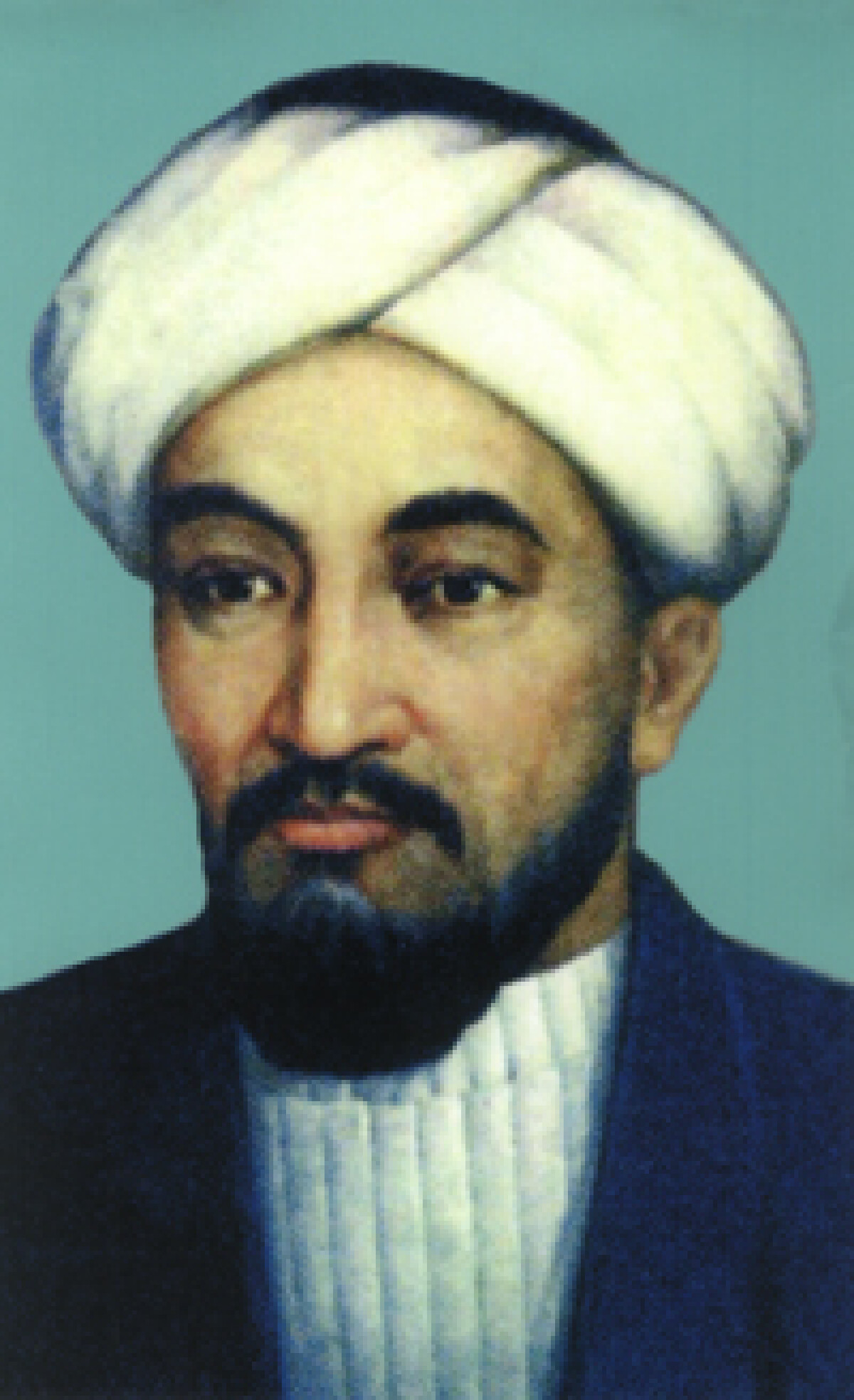Abu Nasir al-Farabi
Abu Nasir al-Farabi, a prominent thinker of East, was born in 870 in Farab city (now famous as Otrar), situated at the place of Aris river flowing into Syr Darya river (which corresponds nowadays to Otrarskiy region of the Eastern Kazakhstan).
As the word “tarhan” included in his full name Abu Nasr Muhammad ibn Muhammad ibn Tarhan ibn Uzlag al-Farabi at-Turki depicts, he by birth was representative of one of Turks’ privileged layers.
During 9th and 10th centuries Otrar city was a big political, cultural and commercial center, acting as junction point on the Grate Silk Road caravan ways that connected Medieval Europe with Asia.
The main body of his knowledge Abu Nasr acquired in Otrar. In this city to the age of 20 there he has had an opportunity to get acquainted with philosophical and scientific works belonging to one of the richest libraries of the time (it was considered second after legendary Alexandria library as far as the number of books and hand righting was concerned).
Then he studied and worked in Bukhara, Samarqand, for a long period stayed in Baghdad that was cultural and political center of Arabian Caliphate. The last years of his life were spent in Cairo, Aleppo and Damascus enjoying a lot of appreciation. In Damascus in December, 950 eighty years-old al-Farabi passed away.
It worth noting that Al-Farabi had an opportunity to get acquainted with the books of Aristo, Plato and other ancient philosophers in theirs original language which enabled him to become one of the founders of Peripatetic philosophy in the East. It was because of this that he was titled as “The Second Theacher” with Aristo being the First.
He left to us a huge scientific heritage, including about 200 treatises encompassing fairly diverse branches of knowledge – he commented upon Aristotelian “Categories”, “The Hermeneutics”, “Topics”, “Analytics” (its 1st and 2nd parts), “On Sophistical Refutations”, “Rhetoric”, “Organon” and “Poetics”, as well as upon “Isagogy” of Porphyries and further works of different ancient thinkers. The most famous of Farabi’s original works is considered to be his treatise “The pearls of Wisdom”, “The Ideas of the Citizens of the Virtuous City”, “The Philosophical Treatises” and “The Grand Book on Music” with the last bringing him fame especially in Europe.
In the Medieval Europe translations of al-Farabi’s works to Latin and Hebrew appeared since very early times (12-13th centuries), and in 1930-1932 the translation of the first part of “The Grand Book on Music” to French was published in Paris by a French scientist Erlangen.
The name of al-Farabi has entered the history of world science and culture. Undoubtedly his works possessed a grate influence upon European Renaissance and acted as a connecting bridge being to draw together Eastern and Western cultures and philosophies.
Share:









